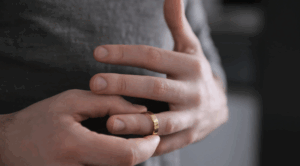Divorce is not just a legal event—it’s an emotional journey. Many people going through separation experience the 5 stages of grief in a divorce, much like mourning the death of a loved one. Recognizing these emotional stages of divorce can help you heal, cope, and move forward with clarity. According to Verywell Health, divorce grief often involves ambiguous loss and varies in progression among individuals.
What Are the 5 Stages of Grief in a Divorce?
This emotional model, originally developed by Elisabeth Kübler-Ross, applies to many types of loss—including the end of a marriage. Here’s how it shows up in divorce—following a similar progression as outlined by DivorceNet’s detailed guide.
- Denial
“This can’t be happening.” Denial is a natural defense mechanism that buffers the shock of divorce. You might avoid the truth, hoping things will return to normal.
- Anger
Frustration, resentment, or rage may follow once reality sets in. This stage can be directed at your spouse, yourself, or the situation. It’s a common reaction, especially in high-conflict or betrayal-heavy divorces.
- Bargaining
“What if we just went to therapy?” Bargaining is the attempt to reverse the divorce or lessen its emotional impact. It’s often marked by guilt and “what-if” thinking.
- Depression
Sadness, loneliness, and a loss of motivation can set in. This stage is often the hardest, especially for those who didn’t initiate the divorce.
- Acceptance
Eventually, you start to feel peace. You accept the divorce and begin to plan a future without your spouse. This is when healing truly begins.
Whether you’re going through the 5 stages of grief after divorce or simply navigating the emotional fog, know that this path is normal—and temporary.
Emotional Stages of Divorce for a Man vs. Woman
Though grief is universal, research shows differences in how men and women process divorce:
- Emotional stages of divorce for a man may be more internalized, with a delayed emotional response.
- Emotional stages of divorce for a woman often begin earlier—especially if she initiated the divorce—resulting in quicker processing but deeper early pain.

Research featured in Psychology Today confirms that men often suffer longer from sadness and insomnia after separation, while women tend to have broader support networks to help buffer emotional fallout.
How to Cope With Divorce Grief
- Seek support from friends, family, or a therapist
- Avoid major decisions during emotional highs or lows
- Journal your thoughts to track your healing
- Build new routines that prioritize self-care
Legal Help for a Smooth Transition
Understanding your rights and having a trusted legal advisor can ease your mental burden. Consult a divorce attorney in San Jose for practical legal help.
You may also need guidance on:
- Spousal support in California
- Paternity matters
- Family law services




